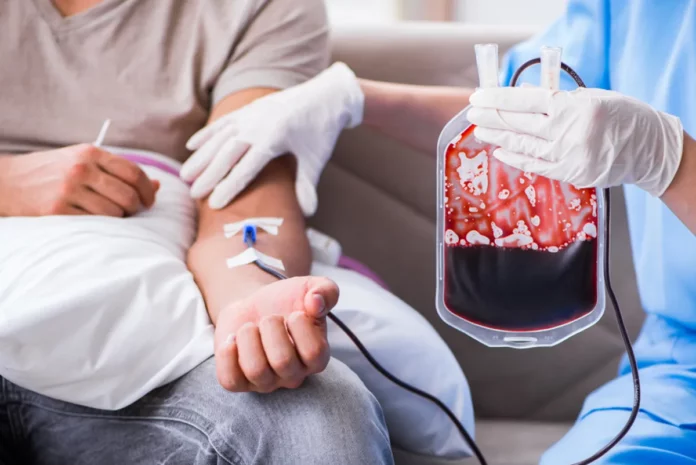Lab-grown blood has been given to patients in the first-ever trial in the world. The blood was transfused to see its performance and if the body reacts negatively. However, synthetic blood is very difficult to create and cannot replace current blood donations. But it can represent a turning point to overcome a shortage of rare blood groups. That is only if the trial is successful.
The blood was made using stem cells taken from donors and transfused through a randomized clinical trial known as RESTORE. The aim of the RESTORE trial is to help patients with rare blood groups and blood disorders. For example, sickle cell anaemia.
The scope of the current phase is to analyze the lifespan of the lab-grown blood cells in contrast to donor cells. Furthermore, the expectation is that freshly grown cells will last longer than donor cells. The red blood cells last 120 days before they are replaced. However, donor cells do not manage that, which may be changed with the help of lab-grown cells.
If this initiative goes successfully, patients receiving alternative blood will require less often transfusions. Additionally, it is also safer and has fewer complications. However, only two patients have gotten the blood transfusion so far.
Ashley Toye, Professor of Cell Biology at the University of Bristol, and Director of the NIHR Blood and Transplant Unit said,
This challenging and exciting trial is a huge stepping stone for manufacturing blood from stem cells. This is the first-time lab-grown blood from an allogeneic donor has been transfused and we are excited to see how well the cells perform at the end of the clinical trial,
Blood transfusions in NHS U.K. cost 130 GBP per transfusion based on BBC’s findings. This is where there will be a falter in manufactured blood because it will cost a lot more. Therefore it will only be used to cater to rare cases and people who are unable to get a donor at reasonable timeframes.
Dr Rebecca Cardigan
It’s really fantastic that we are now able to grow enough red cells to medical grade to allow this trial to commence, we are really looking forward to seeing the results and whether they perform better than standard red cells,




